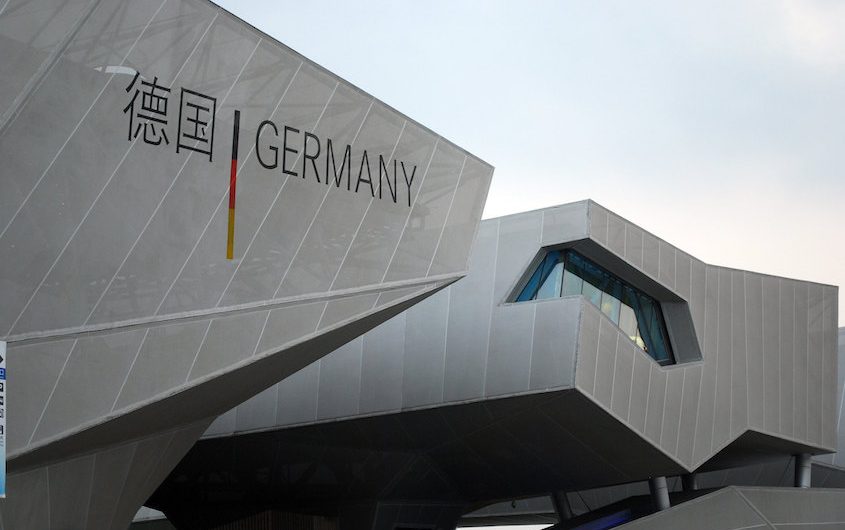
Angie Kim via Flickr
Scholz Goes to China

Yixiang Xu
China Fellow; Program Officer, Geoeconomics
Yixiang Xu is the China Fellow and Program Officer, Geoeconomics at AGI, leading the Institute’s work on U.S. and German relations with China. He has written extensively on Sino-EU and Sino-German relations, transatlantic cooperation on China policy, Sino-U.S. great power competition, China's Belt-and-Road Initiative and its implications for Germany and the U.S., Chinese engagement in Central and Eastern Europe, foreign investment screening, EU and U.S. strategies for global infrastructure investment, 5G supply chain and infrastructure security, and the future of Artificial Intelligence. His written contributions have been published by institutes including The Chinese Academy of Social Sciences, The United States Institute of Peace, and The Asia Society's Center for U.S.-China Relations. He has spoken on China's role in transatlantic relations at various seminars and international conferences in China, Germany, and the U.S.
Mr. Xu received his MA in International Political Economy from The Josef Korbel School of International Studies at The University of Denver and his BA in Linguistics and Classics from The University of Pittsburgh. He is an alumnus of the Bucerius Summer School on Global Governance, the Global Bridges European-American Young Leaders Conference, and the Brussels Forum's Young Professionals Summit. Mr. Xu also studied in China, Germany, Israel, Italy, and the UK and speaks Mandarin Chinese, German, and Russian.
__
Much ink has already been spilled over German Chancellor Olaf Scholz’s upcoming visit to China. A chorus of skeptics and critics in Germany, around Europe, and across the Atlantic have raised objections to what they perceive as a Merkel-style pilgrimage to Beijing by the new chancellor, with a large business entourage in tow. The circumstances surrounding the visit don’t make for great optics either. After a long rehearsal of policy talks to change course on Germany’s China policy, news of Berlin’s fresh decision to allow Chinese state-owned shipping conglomerate COSCO to buy a stake in the Hamburg terminal and the planned government approval of a Chinese takeover of German company Elmos’ semiconductor production have raised strong objections at home, including from the SPD’s coalition partners.
Scholz is visiting China at the invitation of the outgoing Chinese Premier Li Keqiang, according to China’s foreign ministry. As Li, often seen by China watchers as a pragmatist and technocrat, is set to depart from the Politburo Standing Committee (PSC), the Chinese Communist Party’s (CCP) top decision-making body, the invitation already looks like a relic from a bygone era. The new PSC and the wider CCP Politburo are packed with members whose previous political connections and loyalty to Xi Jinping count as their most notable career attribute. The CCP’s top leadership reshuffle sends a clear message—Beijing’s future policies will be determined by Xi’s ideological convictions and dutifully implemented by a bureaucracy eager to demonstrate its adherence to its paramount leader’s political orthodoxy.
And China’s long-running zero-Covid has shown that under Xi, the government is willing to stick to his policy vision despite clear evidence of mounting costs to China’s economy and deep state intrusion, even by modern Chinese standards, into the daily lives of its citizens. Commenting on the Scholz visit, the Chinese state media Global Times claims “Germany, or any other country for that matter, has no right or qualification to point fingers at other countries’ domestic policies and internal affairs.” What room is there, then, to press China to open up its domestic markets and address, in Western views, egregious human rights violations at home, as Chancellor Scholz plans to do?
Therefore, it is hard to imagine the chancellor turning up in Beijing without a mutually agreeable agenda, which Beijing deems to be economic and trade cooperation. Scholz’s handling of the Hamburg port sale fits that bill, but the controversy surrounding his decision highlights the ongoing conundrum facing Germany’s China policy. Although the German government adopted the triad approach to dealing with China as partner, competitor, and systemic rival, it has yet to determine how to handle these three parallel tracks in practice. Berlin is still in the middle of drafting a new China strategy, which is expected to hew closely to the EU’s similar approach to its relationship with China. And despite calls within the bloc to unite behind a single China policy, the slow process of assembling consensus often visibly clashes with varying national economic and geopolitical interests. For years, Beijing has taken advantage of these internal divisions in the EU, dangling economic opportunities and, more recently, threatening economic coercions in its bilateral relationship with EU member states and through China-sponsored regional forums such as the Cooperation between China and Central and Eastern European Countries, or 16+1. COSCO’s veiled threat to take its cargo business elsewhere in Europe very much follows the same playbook. (But seriously, everyone needs to put to rest the idea of a joint Macron-Scholz visit. No German chancellor on his debut trip to China should expect an escort by the French president.)
Furthermore, China’s de facto trade sanctions against Lithuania have brought home two lessons. The first is that Beijing is determined to define redlines in its relationship with Europe and will resort to challenging the EU’s own internal rules and mechanisms—in this case, the rules governing the single market—to retaliate. The second, that Berlin and Brussels do not yet possess effective means of countering China’s economic coercion without breaking their adherence to open market principles or expecting escalating retaliation from Beijing. These are formidable challenges for a German government that wants to avoid further economic woes while being pressed to take a tougher stance toward China.
This is also why questioning the German government’s ability to learn from the mistakes of its past Russian policy is not very productive. The problem isn’t that German businesses, especially large corporations, don’t see any risks of close entanglement with China. Rather, it is difficult to construct a plausible scenario of a catastrophic severance of bilateral economic relations, not to mention contemplating the ensuing grave consequences. Germany’s energy reliance on Russia prior to Putin’s invasion of Ukraine pales in comparison with the scope of Sino-German trade and investment. A wholesale retreat from the Chinese market or even potential write-off of assets could make Europe’s current energy crisis look like child’s play. The German government and German businesses have a conceivable plan to replace Russian gas and oil with renewable sources. Many of them don’t yet know if it’s even possible to do business without China.
Germany’s asymmetric economic dependence on China is also part of its bigger problem of sustaining an economic model that is increasingly under pressure from growing international geopolitical tensions and an unraveling global trading system. Diversifying Germany’s economic ties and supply chains to reduce vulnerabilities is only part of the solution. The country also needs to think strategically about the future of its large industrial corporations versus its numerous Mittelstand companies and how to create new competitive advantages in a global economy driven by new technologies. Addressing these structural issues will take time, as well as close coordination with like-minded partners.
There’s no question where Germany’s political and moral values lie—with Europe and its liberal democratic allies. And Berlin’s current China conundrum doesn’t preclude a significant policy shift in the future. The circumstance surrounding Scholz’s visit to China and the ensuing criticism serve as a loud reminder that business as usual with China is no longer tenable. What remains to be seen is what China means for Germany going forward and what Berlin will do to change its calculus of that relationship.








